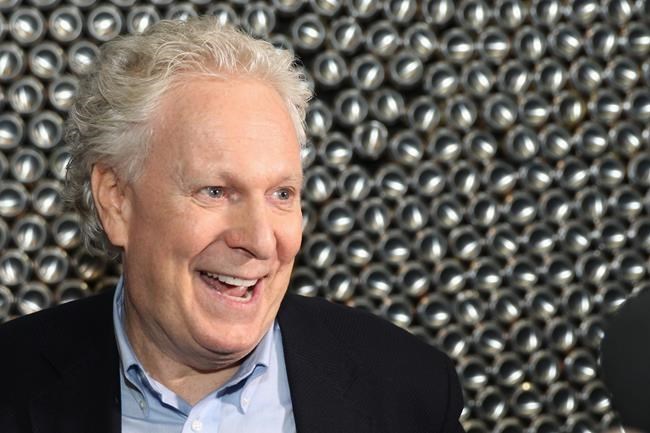OTTAWA — Two thorny ideas have been injected into the race to lead the Conservative Party of Canada: Ending supply management and supporting more private health-care options.
The ideas were presented this week by individual candidates and carry some baggage from past races — although some Conservatives welcome the policies, believing they fit within the small-government, free-enterprise thinking the party promotes.
Former Quebec premier Jean Charest pledged to reform the country's public health-care system as a way to end the practice of using lockdowns to stem the spread of COVID-19.
He promised to revamp health care through a slate of measures, including allowing "private providers to foster innovation."
Charest's plan also included a pledge to "untie the provinces" by permitting each to determine the "right health-care delivery model that works for them."
Only seven months earlier, former leader Erin O'Toole was attacked by the Liberals for suggesting the same during the federal election.
He found himself on the defensive after Deputy Prime Minister Chrystia Freeland posted a video clip from his 2020 leadership bid.
The clip showed O'Toole answering "yes" when asked if he supported "the provision of private, for-profit and non-profit health-care options within the universal health system.” Twitter labelled Freeland's post "manipulated media" because the video wasn't shown in its entirety.
The Liberals accused O'Toole of wanting to push a private, for-profit, two-tiered health-care model. He denied the accusation, instead pledging his full support for the public system while touting opportunities for more private-sector "innovation."
He added that he approved of provinces applying their own ideas to improve health-care delivery, like Saskatchewan's use of private MRIs to combat wait times.
The vow to axe supply management came from rural Ontario MP Scott Aitchison. He suggested doing so would bring down prices on farm products at a time when families are seeing their grocery bills rise due to high inflation.
The MP is still working to raise the $300,000 in fees required to formally enter the race.
Ending supply management was trotted out as a campaign promise by Maxime Bernier, the former Conservative party leadership front-runner who was defeated by Andrew Scheer in 2017.
Bernier's campaign against the supply-management system inspired many farmers in his home province of Quebec to take out memberships to vote against him in the Conservative race. After losing the contest, he founded the People's Party of Canada.
Scheer defended the system of setting quotas on products like milk and eggs and high tariffs on imports. He gave a nod to this fight when he took a swig from a carton of milk at a press gallery dinner after winning the Conservative leadership.
Aitchison said the lobbyists of the industry have fought hard to maintain the status quo.
"But it's a system that makes life more expensive and actually is not good for farmers either. They have an opportunity to market their products to the world if we would let them," he said in an interview this week.
He acknowledged dismantling the decades-old program would come with the unknown cost of having to compensate farmers for their quotas.
So far, Aitchison appears alone in his pitch as the two candidates battling it out for Quebec aren't joining the cause.
Pierre Poilievre, whose campaign is rooted in the theme of providing individuals with more freedom in the face of government powers, has said he doesn't plan to change the system.
In an article published last month by The Western Standard, Poilievre said he believed it would cost more to buy farmers out of their quotas than to keep the existing program running.
A spokeswoman for Charest's campaign also said the former Quebec premier would support and defend supply management.
This report by The Canadian Press was first published April 22, 2022.
Stephanie Taylor, The Canadian Press



